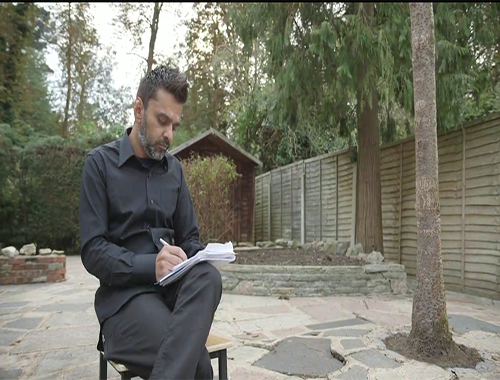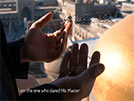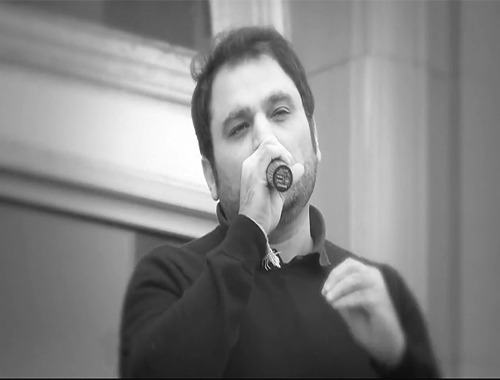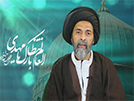Improper Traits of Character
- Details
- Hits: 2039
Improper Traits of Character
The man of Islam must purge himself of those traits of character which are detrimental to his perfection and dignity so that he may foster constructive and pure habits attain the maturity necessary to be a better man and gain proximity to Allah.
Now we propose to mention a few undesirable traits of character which degrade man, are repugnant to his dignity, and cause great harm to human society.
1. Hypocrisy
Hypocrisy means double‑facedness. A person guilty of hypocrisy says what he does not mean and feigns what he is not. Hypocrisy in the field of faith poses a big threat to Islamic society. A person pretending to be a member of the Muslim nation while he is not actually so, is just like a spy who falsely gives himself out to be the supporter of a nation, whereas in fact he is its enemy and is bent upon betraying it.
In other fields also hypocrisy causes damage to many members of the society. For instance, if a person pretends to be a friend and well‑wisher of another person, the other person, believing him to be his sincere friend, confides his secrets to him, consults him in his affairs and may even associate him in his business etc. But if that man is not sincere, he, instead of doing him any good, divulges his secrets and betrays him. The holy Prophet has said:
"A hypocrite is like a crooked palm trunk which cannot fit in anywhere while thatching a roof. Its owner has no choice but to burn it, for it has no other use".
Those who pretend to be the champions of the cause of the people and to be the protectors of faith and society, but always have their own axe to grind and do not hesitate to let down others, prove more dangerous if they attain position and influence, for people place confidence in them and entrust their affairs to them taking them to be their sincere well‑wishers, but ultimately suffer a loss and come to grief.
The Qur'an has severely criticized the hypocrites. It has denounced them on 35 occasions. The tone of the Qur'an in respect of them is so violent that on some occasions it has included them in the category of the infidels (Surah al Tawbah, verses 69 and 74) and on some other occasions it has promised them the lowest class of Hell.
From the Qur'anic point of view the hypocrites are a threat to society, for they spread evil and hinder what is desirable. The Qur'an says: "The hypocrites, whether men or women, are alike. They exhort to evil, restrain from what is good and keep their hands shut. They have forgotten Allah; so He too has forgotten them. No doubt the hypocrites are wicked". (Surah al‑Tawbah, 9:67).
They do their utmost to hinder the advancement of truth:
"When it is said to them: Come to be judged by what Allah has revealed and accept the arbitration by the Messenger, you see that the hypocrites turn away from you giving no heed to you". (Surah al‑Nisa, 4:61).
They do not even hesitate to exert economic pressure on the believers with the intention of weakening their morale and turning them away from the right path: "They it is who say: Spend not on behalf of those who dwell with Allah's Messenger that they may disperse (and go away from you), when Allah's are the treasures of the heavens and the earth; but the hypocrites do not comprehend " (Surahal‑Munafiqun, 63:7).
Still they are very much afraid lest their villainy should be exposed:
"The hypocrites fear lest a Surah should be revealed concerning them, exposing what is in their hearts. Say: Scoff as much as you please. Allah is surely bringing to light what you dread". (Surah al‑Tawbah, 9:64).
They are always scared, and take every voice coming to them to be something said against them: "The hypocrites deem every shout to be against them. They are the enemy, so beware of them ". (Surah al‑Munafiqun, 63:4).
To hoodwink others and in an attempt to prove their own innocence they resort to swearing:
"When the hypocrites come to you, they say: We bear witness that you are indeed Allah's Messenger. Allah knows that you are His Messenger all right; but Allah testifies that the hypocrites are liars". (Surah al‑Munafiqun, 63:1).
However, as soon as they are caught, they deny their misdeeds and still pretend to be the well‑wishers of the Muslims:
"How would it be if a misfortune befell them on account of what they have committed with their their own bands? Then they would come to you, swearing by Allah that they intended nothing but benevolence and conciliation". (Surah al‑Nisa, 4:62).
When they are called to co‑operate, they make glittering promises, but when the time of action comes, they simply go back on their word and betray:
`And some of them made a solemn promise to Allah saying: If He gives us of His bounty, we will give alms and will live like virtuous.' But when He gave them o f His bounty, they became niggardly of it and went back on their promise, ignoring their pledge". (Surah al‑Tawbah, 9:75 ‑ 76).
Hypocrisy is a source of trouble for the hyprocrite as well as for others. These characteristics are a sign of his meanness, gloominess of his soul, his remoteness from Allah and his being devoid of personality. Multiple personality means lack of it. A hypocrite has no human dignity and he is fax removed from Allah.
"Surely! the hypocrites seek to beguile Allah, but it is Allah who beguiles them. When they stand up to offer prayers, they stand up sluggishly. They offer it merely for the sake o f ostentation. They remember Allah, but little. Wavering between this and that, and belonging neither to these nor to those. You cannot find a way for the one whom Allah abandons to go astray". (Surah al‑Nisa, 4:142 ‑ 143).
As regards the hypocrites Imam Ali (P) says:
"O people! I urge you to piety and warn you against the hypocrites. They have gone astray, and misguide others. Their ways are wrong and misleading. Every moment they put a new colour upon themselves and change their appearance. They exploit you to their own benefit. Everywhere they attack you by surprise. Their hearts are diseased, though their outer appearance is glamourous. Their approach is surreptitious. They cause disease and talk of cure. They begrudge the fortune of others and create trouble for them. They smash hopes. It is because of them drat many people have fallen. They pretend to be well‑wishers of others and shed crocodile tears on their misfortune. They praise others in the hope of being praised by them. If they ask for anything, they insist on their demand. If they pick a quarrel with anyone, they calumniate him. They give wrong judgment, invent a falsehood to counter every truth and lay a trap in the way of every investigator. They have appointed an executioner for every living person. In order to secure their vicious ends, they have made a key to open every door and a lamp to give light in every dark night, so that they may upset the plans of others and may win popularity for their own good. When they speak they deceive. When they explain, they stupefy. They ensnare people to co‑operate with them and then close the way of their escape".
2. Arrogance
False pride and arrogant behavior result either from holding too high an opinion of oneself or from inferiority complex: Imam al Sadiq (P) is reported to have said: "Arrogance means belittling others and not being just".
On another occasion he said that arrogance and deprecation of others are the result of one's own inferiority complex. Arrogance is a sign of the lack of common sense.
Imam al Sadiq (P) says:
"One's practical wisdom decreases exactly in proportion to the increase in one's arrogance".
He who can realistically assess his own value and position is always just to others. He readily admits their good points and accepts the truth. He is never arrogant. One who shows superiority is actually suffering from inferiority complex. He knows that he has many short‑comings, and he feels distressed on that account. But instead of making efforts to make up his deficiencies, he tries to conceal them and in order to relieve his complex he puts on airs and shows haughtiness. The fact is that all greatness belongs only to Allah. It is He alone who possesses infinite perfection. It is He who is All‑powerful, All‑knowing, Supreme and the Absolute Sovereign.
Hence it befits Him alone to describe Himself as great and show Himself as great, for He is really Great. But it is not becoming of the others who have been created and reared by Him, are controlled by Him and have nothing of their own, to consider themselves to be greater or to parade themselves as great. They can of course earn comparatively real greatness by acquiring knowledge, gaining spiritual excellence, cultivating excellent moral qualities and seeking proximity to Allah. But they should not put on airs despite being devoid of all virtues.
Imam al‑Sadiq (P) has said:
"Arrogance is a characteristic of the wicked. Greatness is a garment which suits Allah alone. Allah simply debases him who tries to rival Him in greatness".
The proud are the scourge of the society. They are so egoistic that they believe that only what they think is correct. Practically they are concerned only with their own interests and they respect only their own personality. As they think that all merits are reserved for them, they attach no importance to the rights and position of others. They expect everybody else to be submissive and obedient to them. They tolerate only those who bow before them and say yes to all what they wish. Such arrogant people gradually become despotic. Then they do not hesitate to commit any excess and regard themselves as the masters of the life, property and the honor of the other people. This position is diametrically opposite to the educational and social principles of Islam.
Islam believes in the equality of all men. They all being the creation of One Allah, have common rights. From the Islamic point of view encroachment on the rights of even the weakest member of the society is not to be tolerated. Nobody has a right to consider himself to be a superior being or a master of others.
A despotic and arrogant man not only does wrong to himself and abridges his own value and human dignity, but also estranges and alienates others from himself. He not only infringes the rights of others, but also wages a war against Allah and challenges His might and greatness.
"They (unbelievers) will be told, Enter the gates of Hell and stay in forever. YVhat a terrible dwelling place the arrogant shall have!" (Surah al‑Zumar, 39:72).
"Musa said, "I seek refuge in my Lord and your Lord from every arrogant tyrant who does not believe in the Day of Reckoning". (Surah Mo'min, 40:27).
"Thus Allah seals the heart of every arrogant tyrant". (Surah Mo'min, 40:3 5).
3. Slander
Slander means maliciously repeating a tale or a report heard about a person, often with the idea of creating misunderstanding and hostility between two old friends or two families. It is the height of meanness to kindle the fire of enmity and malice between two fellow‑citizens and incite them to be at daggers drawn with each other.
The Qur'an urges us not to listen to such mischief‑mongers going about with slander. It says: "Yield not to any mean oath‑ monger, backbiting slanderer". (Surah al‑Qalam, 68:10 ‑ 11).
Imam al Sadiq (P) has said:
"The biggest sorcery is tale‑bearing which estranges friends from each other and brings about enmity among them. It causes bloodshed and ruins the families. As the result thereof secrets are divulged and people are exposed. A slanderer is the worst man on the earth".
Several other sins go along with slandering as pointed out by Imam Hasan al Mujtaba (P) who said:
"If a person comes to you and speaks ill of someone else, you should know that he is actually speaking. ill of you. It is worth‑while to regard such a person as your enemy and not to trust him, for lying, backbiting, trickery, treachery, deceit, jealousy, hypocrisy, duplicity and creating dissension go hand in hand with slander.
Imam Ali (P) has said:
"The worst of you are those who slander and create discord among friends. They find fault with the innocent".
A decent Muslim will never indulge in slander. He refrains even from listening to and believing in the tales of a slanderer.
The holy Prophet has said: "A slanderer will not enter Paradise".
4. Lying
Lying may be regarded as the root of many evils such as calumny, duplicity, fraud, trickery, perjury, wrong judgment, hypocrisy etc.
The holy Prophet has said: "There are three signs of a hypocrite:
(1) When he speaks, he tells a lie;
(2) When he makes a promise, he goes back on his word;
(3) When some property is placed in his possession for safe custody, he misappropriates it".
A lie misleads many individuals. Those who trust a liar and believe him, go astray. If the falsehood which he utters pertains to the domain of dogma, he impairs the thinking power of the people and undermines their essential beliefs.
A liar loses the confidence of the people. A liar cannot conceal his lie forever. One day the truth must come out. Then the liar is exposed and his image is ruined.
A liar betrays himself as well as others. He is always in conflict with his own conscience, for he says contrary to what is in his heart. He is in conflict with the realities of the world as well, because he tries to distort them.
Imam Ali (P) has said:
"A Muslim should abstain from having friendly and brotherly relations with a liar for (eventually he loses all credit in the eyes of the people, because) he continues to utter falsehood till people cease to believe him even if he says something true".
Imam al Sadiq (P) quotes Imam Ali (P) as having said:
"One who often tells lies ruins his prestige and reliability". It is evident that a liar utters falsehood either because of fear or because of his covetousness. In either case it is a weakness repugnant to human dignity. Lying spoils spiritual purity and chastity of conscience, and is inconsistent with all the criteria of Islamic morals mentioned above.
In contrast, truthfulness and frankness are the signs of man's personality, his dignity and greatness. A man who is known for his truthfulness is trusted and held in respect by all. Not only his conscience remains satisfied, but he also enjoys social prestige. Both Allah and people are pleased with him. In fact truthfulness is a clear sign of faith. A liar cannot regard himself as a true Muslim.
The Prophet of Islam is reported to have said:
"None can have a true faith unless he has a true heart and none can have a true heart unless his tongue is truthful".
Imam Ali (P) said:
"Nobody tastes faith unless he abstains from lying whether seriously or jocularly".
5. Backbiting and calumny
Imam al Riza (P), is reported to have said: "It is not backbiting, if a person speaking of another in his absence levels a charge against him which is true and the people are aware of it. If however, the charge is true, but the people are not aware of it, then it is backbiting. If the charge is false, that is calumny".
Backbiting is a sin and a foul act, because it defames and humiliates a person, and also because to give publicity to the evil deeds and undesirable acts means to popularize them and to mitigate gradually their indecency in the eyes of the people.
Imam al Sadiq (P) has said:
"He who mentions an evil deed of a Muslim before others, whether he saw it being committed with his own eyes or heard about it from others, will be reckoned with those about whom Allah has said: Surely those who love to spread scandals against the believers, shall receive a painful punishment in this world and the Hereafter". (Surah al‑Nur, 24:19)..
If hidden sins and faults of the people are not unnecessarily exposed, not only the honor of the man concerned is saved, but also evil deeds do not spread out among the general public. Islam has so much denounced backbiting that the Qur'an has likened it to the eating of the flesh of one's own dead brother:
"You should not backbite each other. Does anyone of you like to eat the flesh of his dead brother? You surely detest that". (Surah al‑Hujurat, 49:12).
Islam insists on deep friendly and brotherly relations among the people. It does not like that any ill‑feeling should develop among them. It wants that nobody should play with the honor of anyone else. That is why it has so severely denounced backbiting.
As a first step to check backbiting it is necessary that we should not lend ear to what a backbiter says. By doing so not only we will discourage him, but will practically intercept his evil‑speaking. A speaker is naturally disheartened if the listener shows distaste for what he says. On the other hand the credulous listeners induce the backbiters to tell their tales in a more pompous style and even to go a step further and fabricate false and malicious stories. That is why Islam looks upon the listener of backbiting as an accomplice of the backbiter.
Though as a general rule backbiting is inconsistent with the moral principles of Islam, sometimes social considerations demand that a misdeed should be reported. We here reproduce with some further explanation what Shaykh Bahai has said in this connection.
The Muslim scholars (ulema) regard the disclosure of the faults and sins of others as lawful in the following circumstances:
(a) Evidence
When in a criminal case an Islamic court calls someone as a witness, he should state before the court exactly what he knows about the crime. No doubt he has to disclose the sin and the fault of the accused against his wish, but justice demands that he should make a frank statement according to his conscience keeping in mind that Allah knows what he says.
(b) Restraining from evil
As we know it is the duty of a Muslim to prevent others from committing crimes and sins. The preventive action has several degrees, some of them being more severe than the others. Should there be a case that an offender wishes to commit a crime secretly and is not willing to give up his plans unless he is exposed, it is necessary to disclose his evil intentions to prevent him from proceeding with his harmful action.
(c) Complaint
If a wrong is done to anybody, he has a right to defend himself and make a complaint against the offender.
(d) Guidance and consultation
If a person wants to marry another person, associate him in his business, travel with him or enter into any other kind of contract, he will naturally make enquiries about the other party. In such cases all those who are consulted should tell the truth exactly as they know it. But they should be careful not to speak ill of anybody unnecessarily or maliciously and thus harm the interests of the parties concerned.
(e) Exposing the false evidence
Exposing the lie of a person who has given false evidence, fabricated a false report or expressed a wrong opinion or view is allowed.
(g) Grading
Grading of the scholars and the professionals for the information of general public, to enable everybody to find out a suitable physician, craftsman or scholar.
6. Jealousy
Usually in every society are found some individuals, who by dint of their efforts or talents have acquired some such distinction as extraordinary knowledge, above average technical proficiency, commendable children, high lawful income, educational achievements and the like. The reaction of the people to such individuals varies: Some remain indifferent and for them the question has no importance. Some others feel happy that some one is well‑off or has achieved a distinction.
Still some others start thinking why they themselves should not have similar achievements and, in the spirit of constructive rivalry, endeavour to make progress and secure what they do not possess. But they do not begrudge others.
Still there are some who cannot tolerate the well‑being of others. They wish to have themselves everything good to the exclusion of others. The progress of others makes them uneasy, and they, instead of making any efforts to make progress themselves, express their uneasiness by speaking evil of others and trying to harm them. Such reaction is called jealousy, which is an offensive and objectionable quality, but unfortunately quite common among men and women, young and old. Even some of those who themselves hold high positions feel offended by the progress of others. So long as jealousy is not accompanied by any corresponding action, it causes inconvenience only to the jealous person himself who feels uneasy in his heart. But as soon as it is translated into action it takes the shape of evilspeaking, backbiting, calumniating etc.
Imam al Sadiq (P) has said:
"A man who has three undesirable qualities is devoid of faith. They are greed, jealousy and timidness".
"The root of jealousy is the blindness of heart and contention with divine blessing. These are the two wings of infidelity".
"A jealous person always comes to grief and falls into a jeopardy from which there is no escape".
Imam Ali (P) has said:
"It is enough punishment for a person jealous of you that he is sad when you are happy".
"I have not seen any oppressor who may be resembling an oppressed person more than a jealous person. He is always sad, dejected and unhappy".
Imam al‑Naqi (P) has said:
"A jealous person does more harm to himself than to others".
Jealousy is in fact a sign of a number of deficiencies and diseases viz:
(a) A jealous person is selfish and wants everything for himself to the exclusion of others.
(b) He is narrow‑minded; otherwise he would not have reacted in this way to the progress made or the distinction achieved by another person.
(c) He is short‑sighted. That is why he cannot think that others also have a right to secure some position.
(d) He is an aggressor, for he is ready to give a blow to the other party and endanger his position and peace of mind with a view to relieve, according to his thinking, his own complex.
Combating against jealousy
The effective way to combat against jealousy is that the jealous person himself should make positive efforts to achieve some success and gain some distinction. Naturally a man busy with himself has little time to begrudge others. In most cases gradually his broad‑mindedness and extroversion are revived and he comes out of his shell. He begins to take others also into account, and feels that he is closely connected with other human beings. His sense of fellow feeling and love of mankind is reawakened. He not only does not grieve at the prosperity of others, but also finds himself willing to make sacrifice for them.
We have seen that jealousy is a spiritual disease and a sign of narrow‑mindedness. It causes inner discomfort to the jealous person and deprives others of their peace. It is a scourge which must be eradicated. But all that does not mean that we should take no action against those who commit any kind of aggression, deprive others of their lawful rights or occupy by underhand means a post for which they are not fit. To take action for the restoration of rights and curbing injustice and deceit is not jealousy. That is something else. Injustice, discrimination and aggression, in whatever form they may be, should be resisted and opposed in an effective manner. Indifference and silence in such cases is in itself a mortal sin.
Hence it is not jealousy to criticize a person who has acquired wealth by unfair means. It is also not jealousy to shake a person off a position which he does not deserve. We should not be indifferent to the seizure of power and honor by unlawful means, but should try to put an end to injustice and see that the deserving man gets his due.











